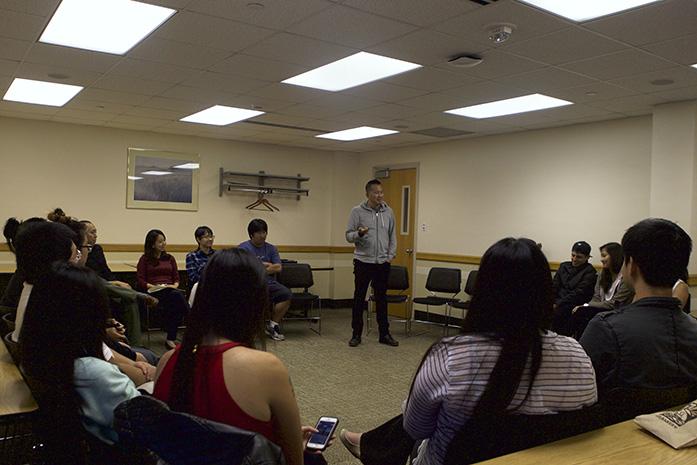Asian American and international student mental-health interests were highlighted Thursday by one University of Iowa group.
PHOENIx, an Asian-American interest group on campus, sponsored a lecture and discussion to shed light on the issue of mental health. “The Invisible Problem: Mental Health in Asian Americans” lecture was given by licensed psychologist and UI Professor William Liu.
Liu talked about the model minority myth that is often associated with Asian Americans, the belief that minority groups such as Asian Americans are more academically and financially successful than other minorities. “This myth is a negative stereotype pinned to Asian Americans that cause huge psychological issues,” he said. “Asians are thought to be quiet, passive to authority, excel academically and career oriented. These stereotypes place Asian Americans in a box full of pressure to succeed.”
Liu noted that this often causes anxiety and depression.
“If perceived failure is experienced enough times the result could be suicide,” he said.
Stereotypes, especially when internalized, are believed to have a heavy correlation to mental illness within the Asian American community. During the lecture one presenter said Asian American college students tend to have the most suicidal ideations. The second leading cause of death among Asian Americans in 2007 between the ages of 15 and 34 was suicide.
During the event, students opened up with possible solutions during the discussion portion, expressing a need to destigmatize mental health and abandon stereotypes.
UI senior Leslie Chareunsab, president of PHOENIx, talked about how awareness of stereotypes can help the mental health issues among Asian Americans.
“Asian Americans often get placed into a lump where we aren’t seen as people with real issues,” she said. “We are stereotyped as only caring about academic success, and that’s constricting.”
Chareunsab said she feels events like the lecture are great solutions to the ongoing problems Asian Americans face.
“If an open dialogue can be started to educate others about macroaggressions and the model minority myth a lot of the pressure felt by Asian Americans could be relieved,” she said. “By eliminating the stereotype of what is expected of us we are able to be free.”
Tracy Vo, a UI junior and cultural head of PHOENIx, said she thinks awareness is essential.
“Mental health and mental illness are very taboo and stigmatized topics,” she said. “It’s difficult to discuss, but when an issue is so prevalent it has to be addressed head on.”
Vo said she thinks mental health remains an invisible problem because little is done to combat the issue.
“The model minority myth, along with other negative stereotypes, impacts the mental health of many Asian Americans,” she said. “We have to discuss both because the solution to one issue lies in the resolution to another.”







